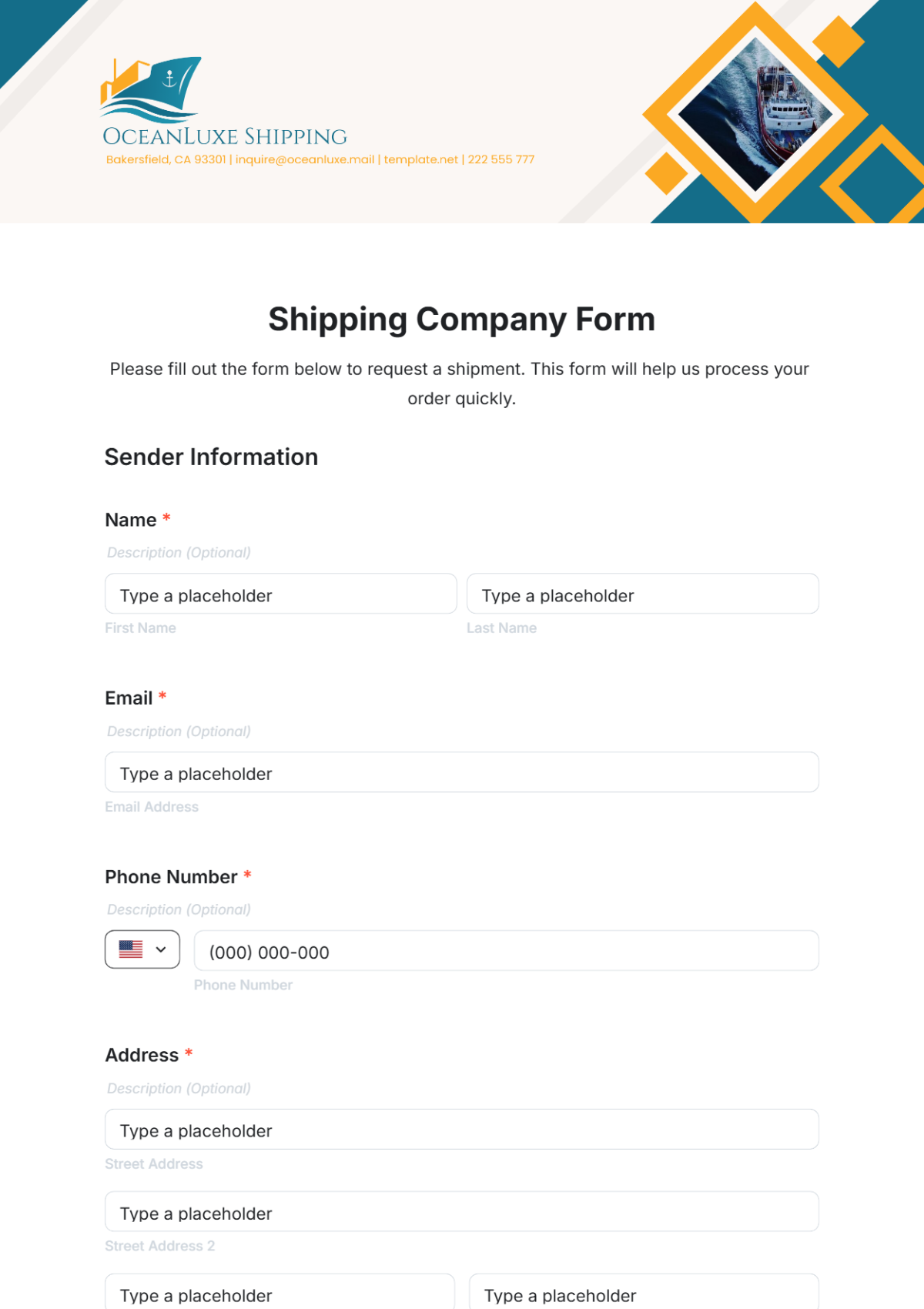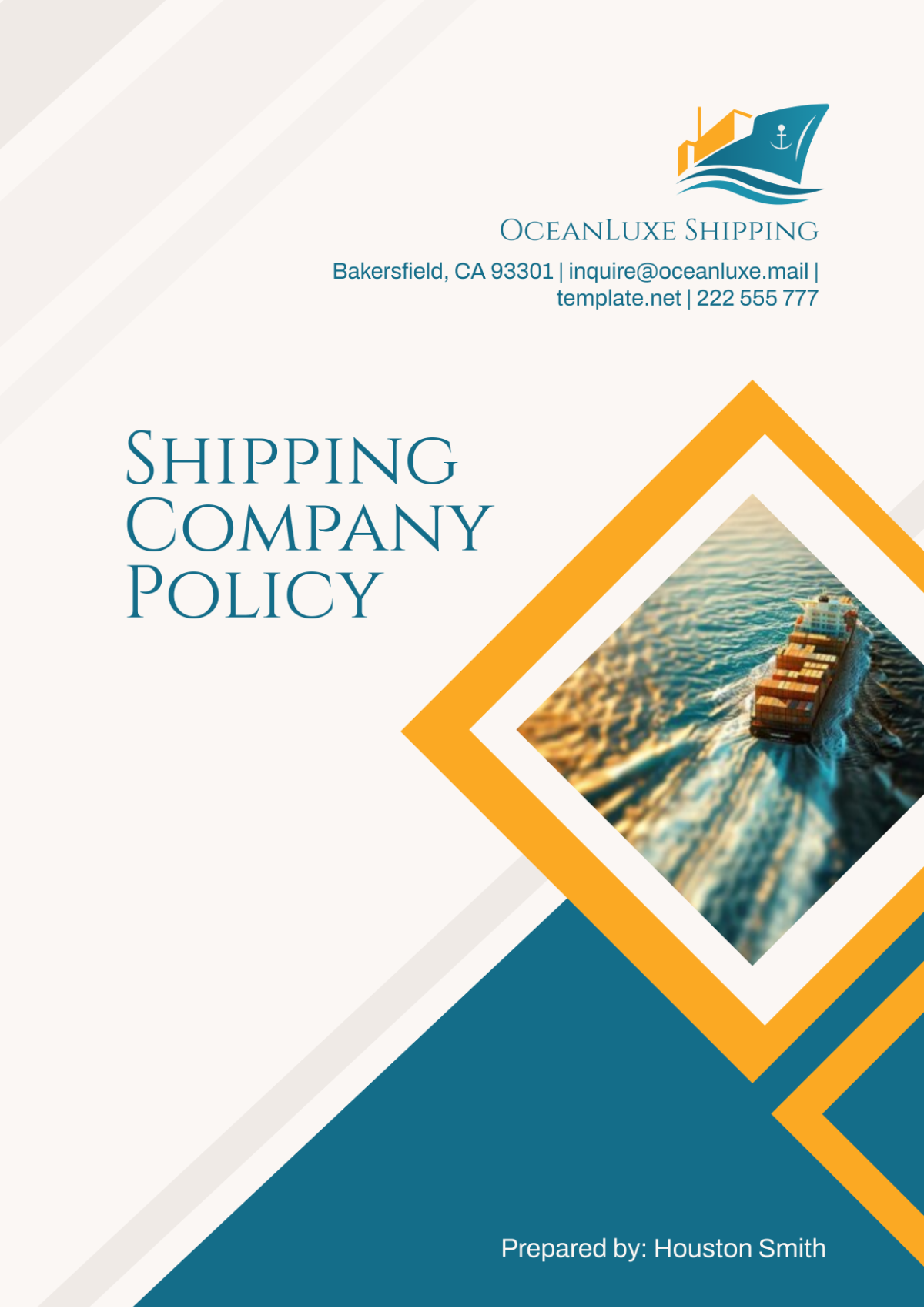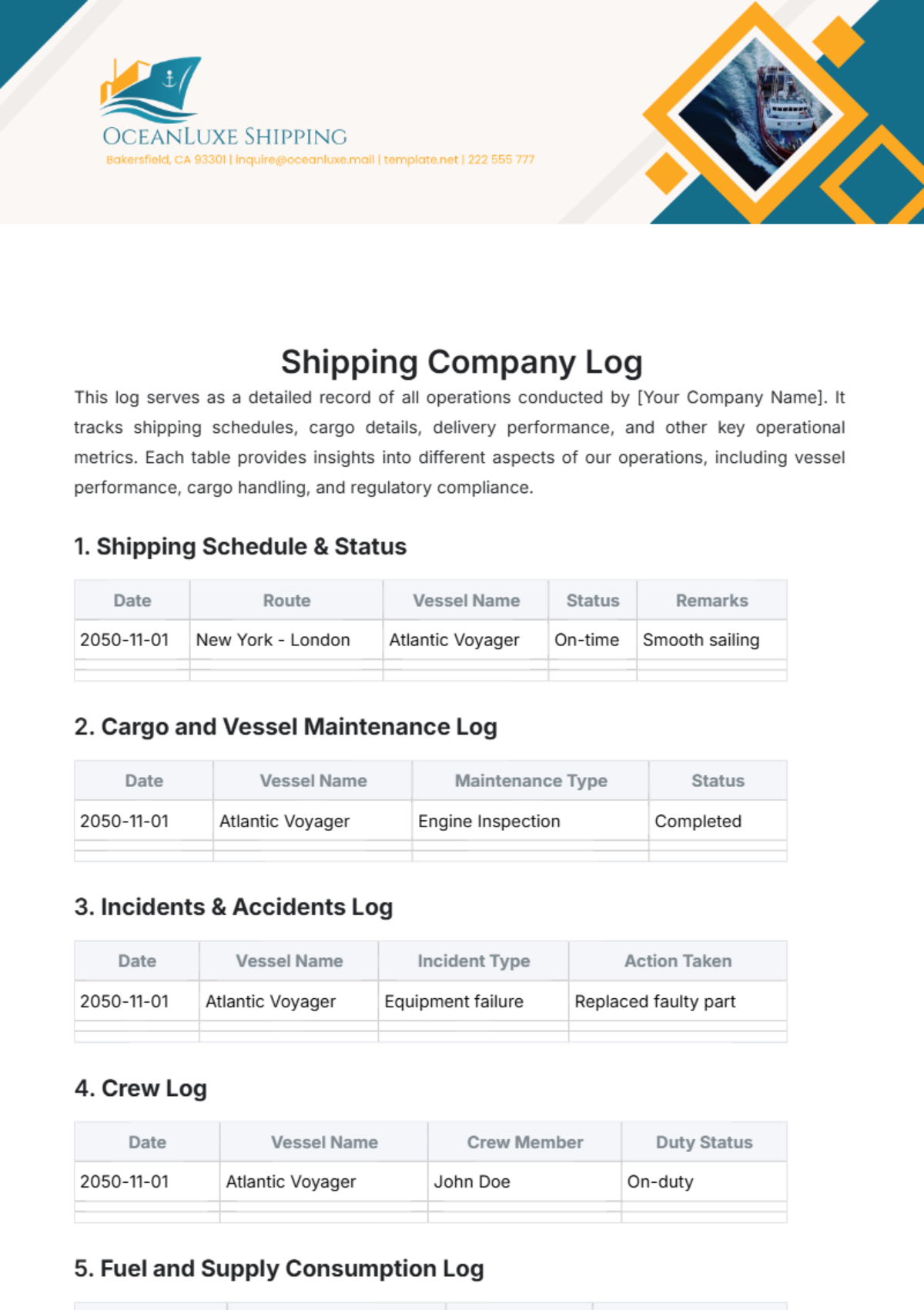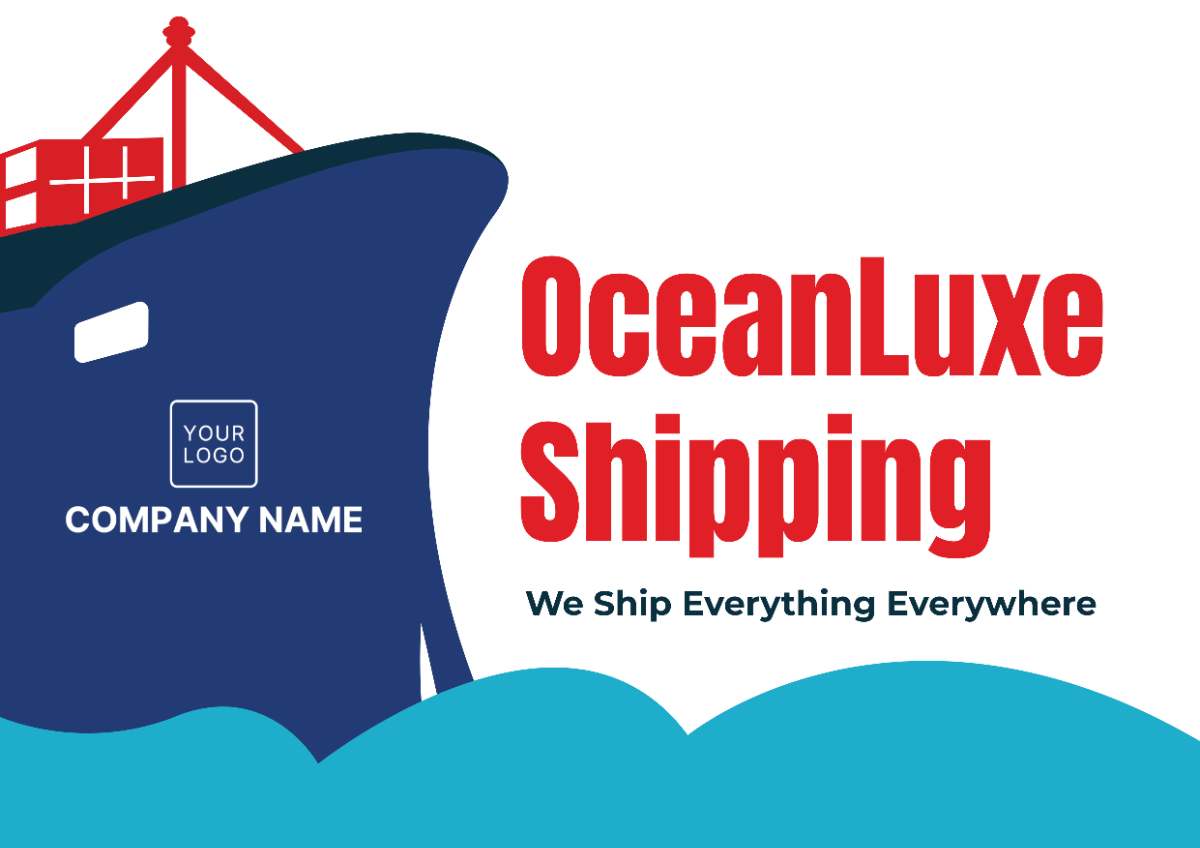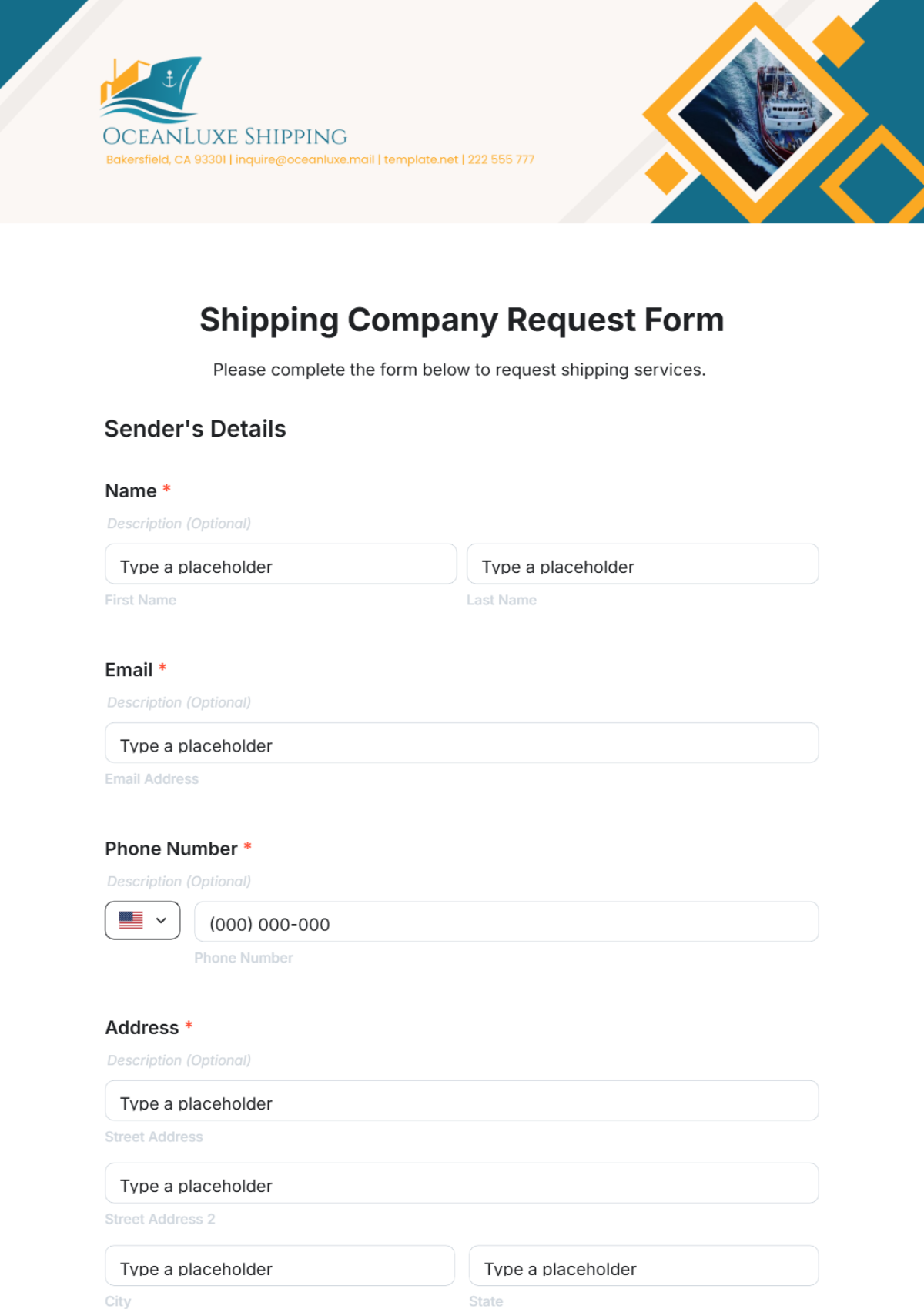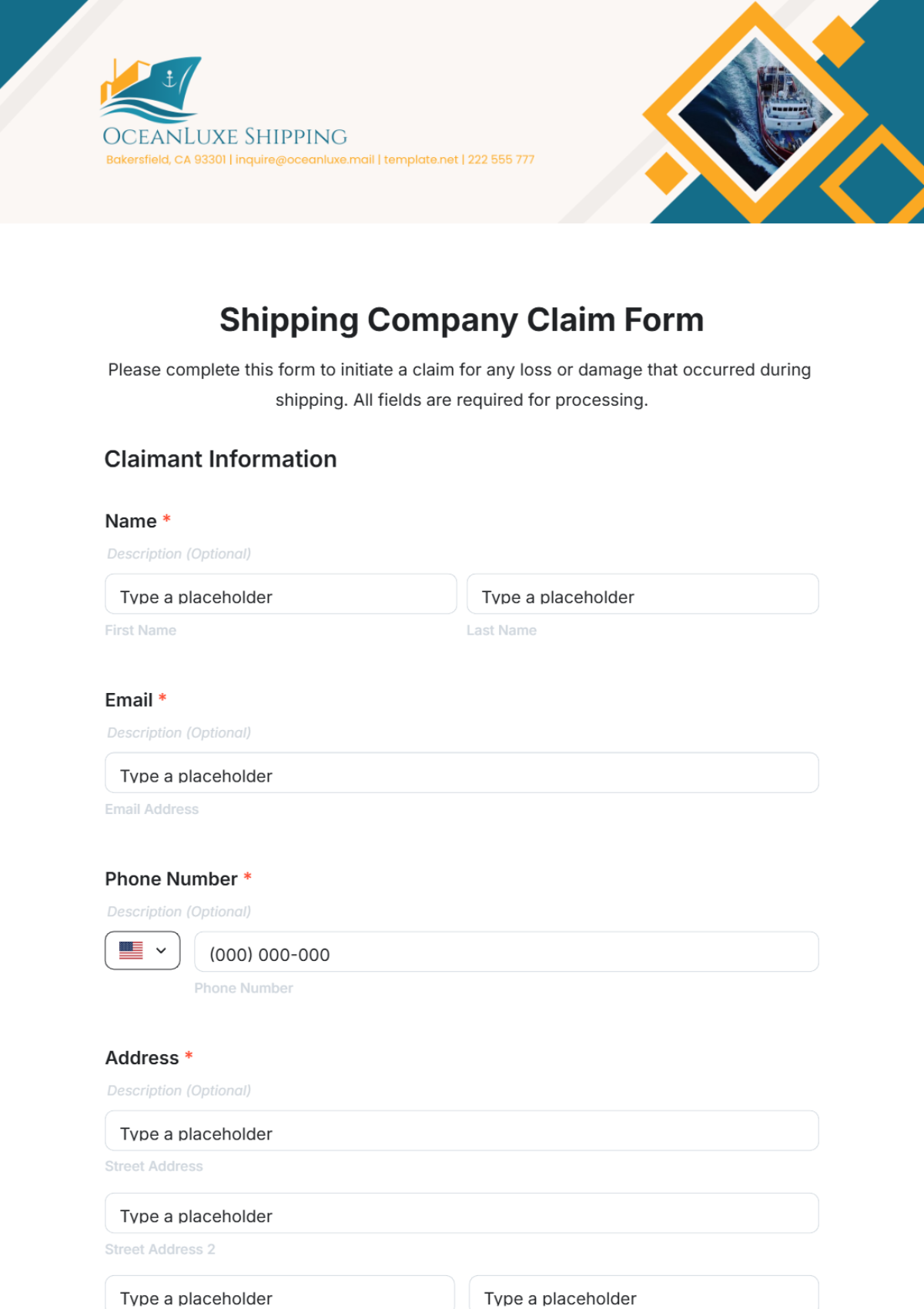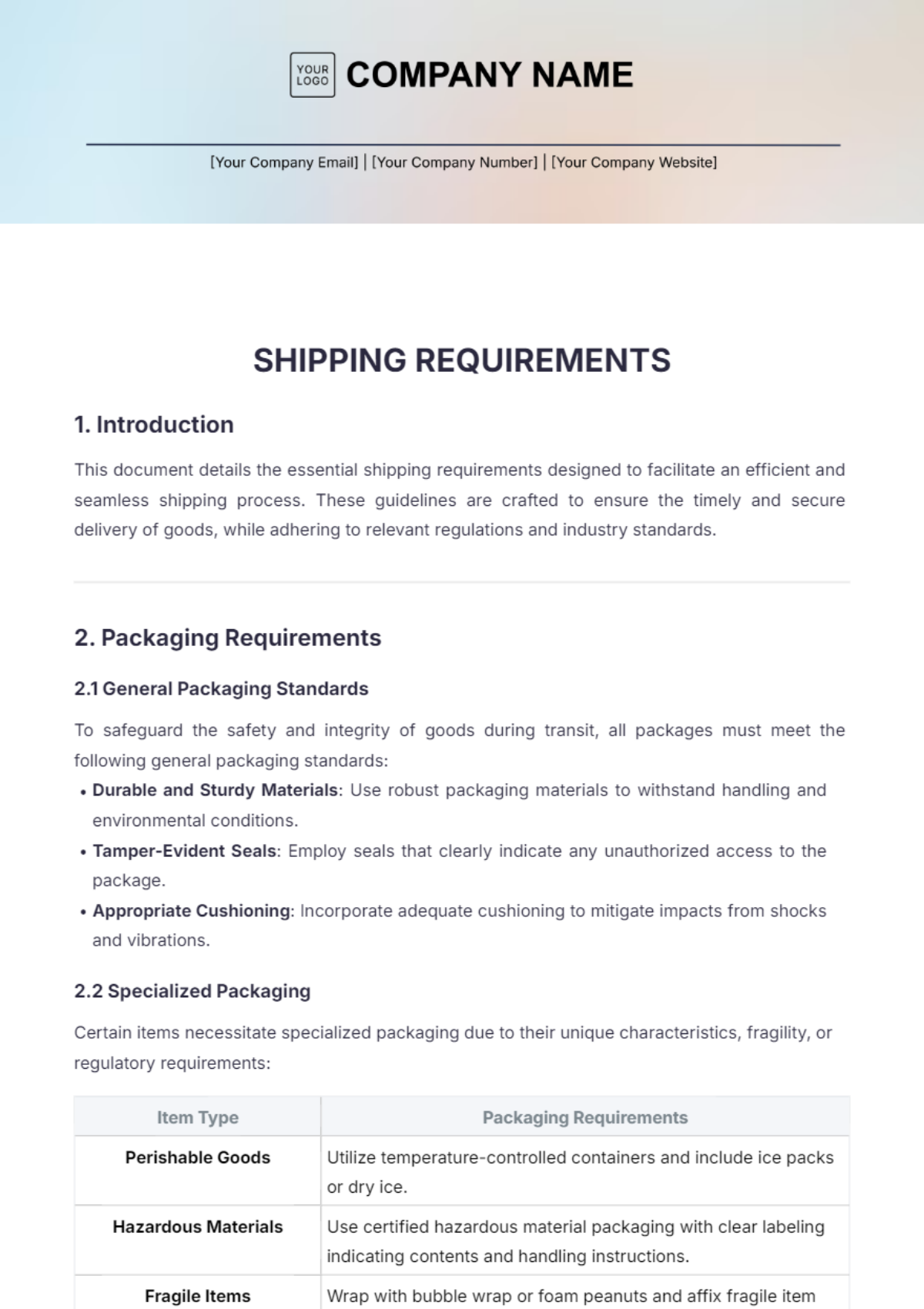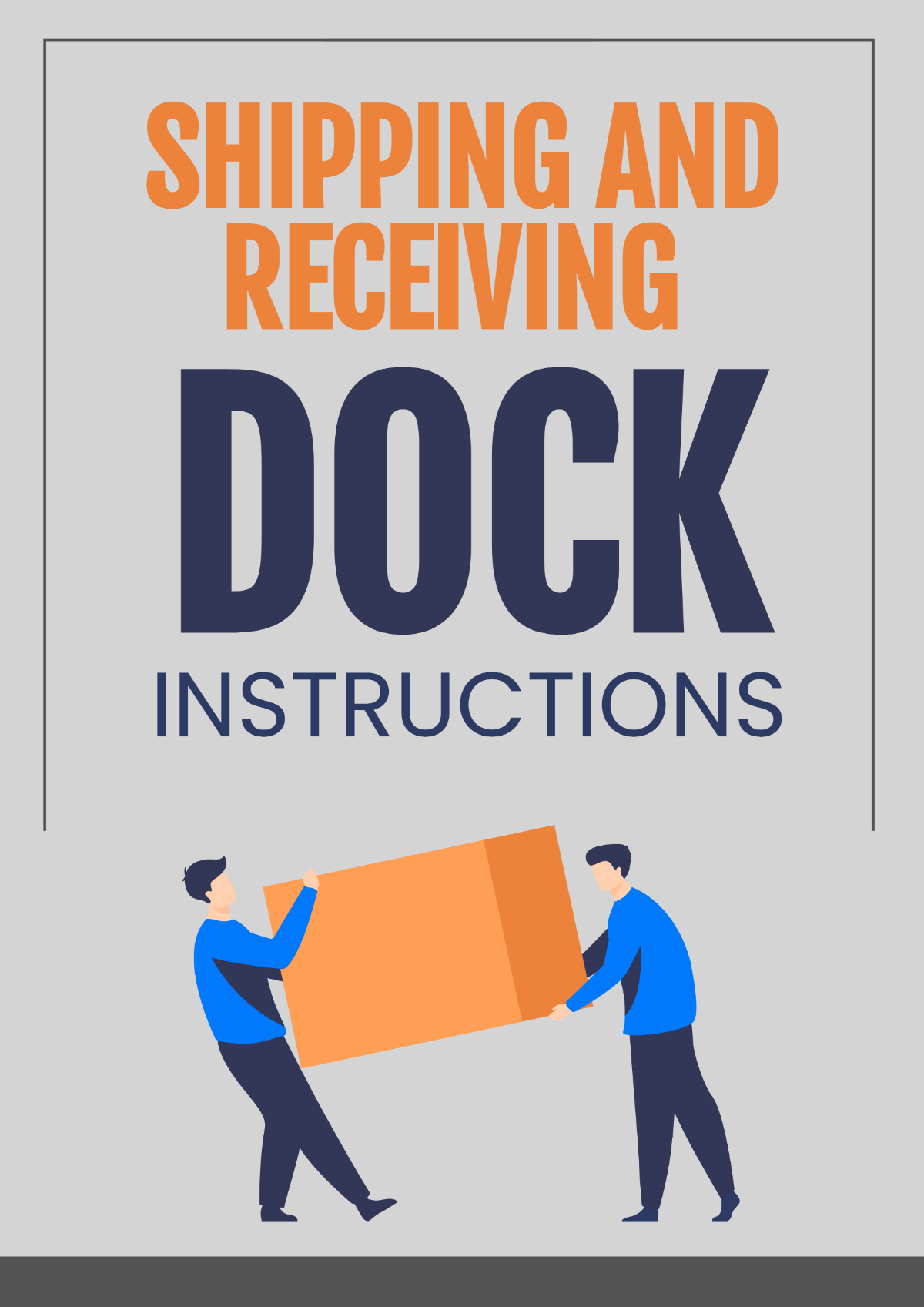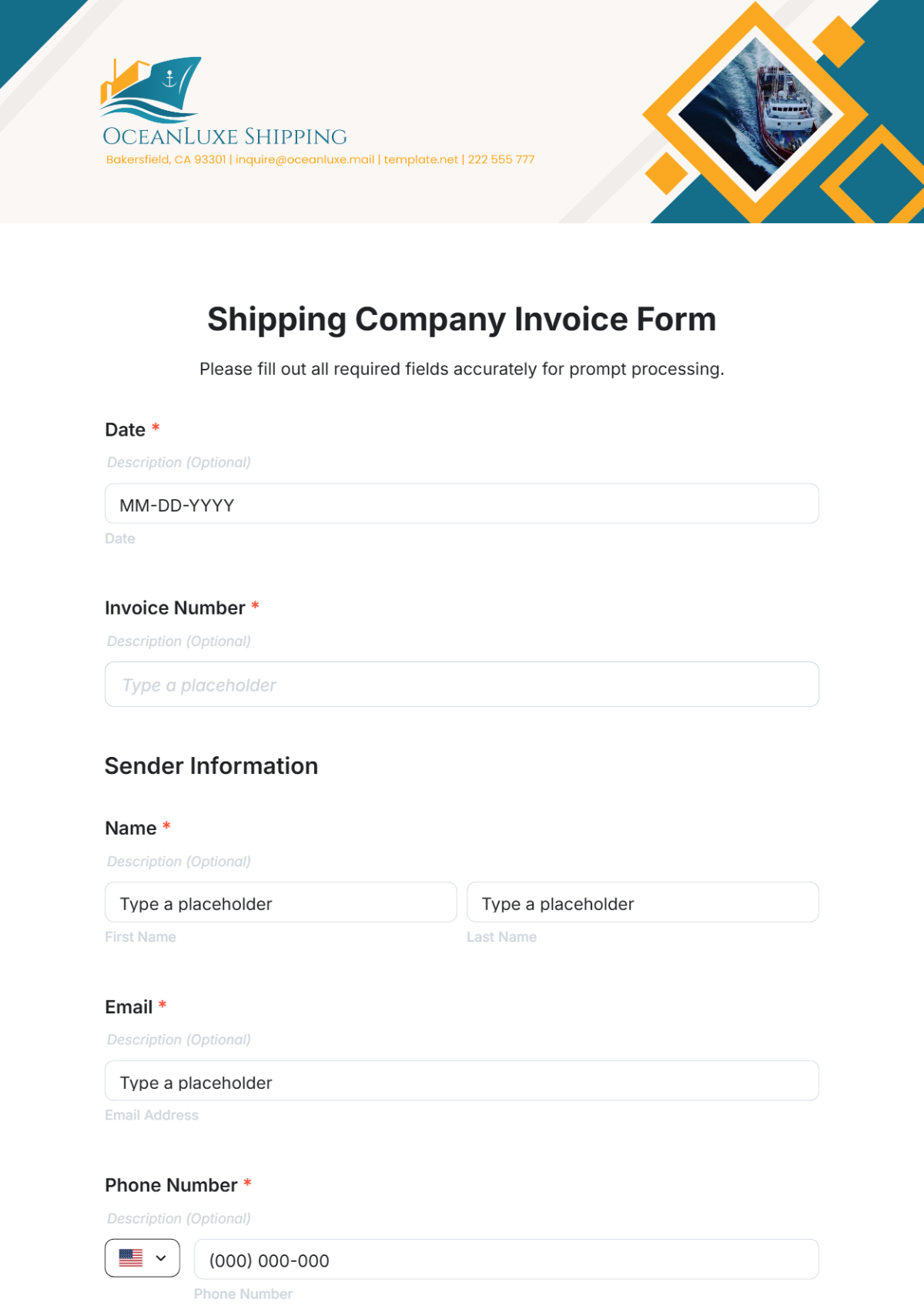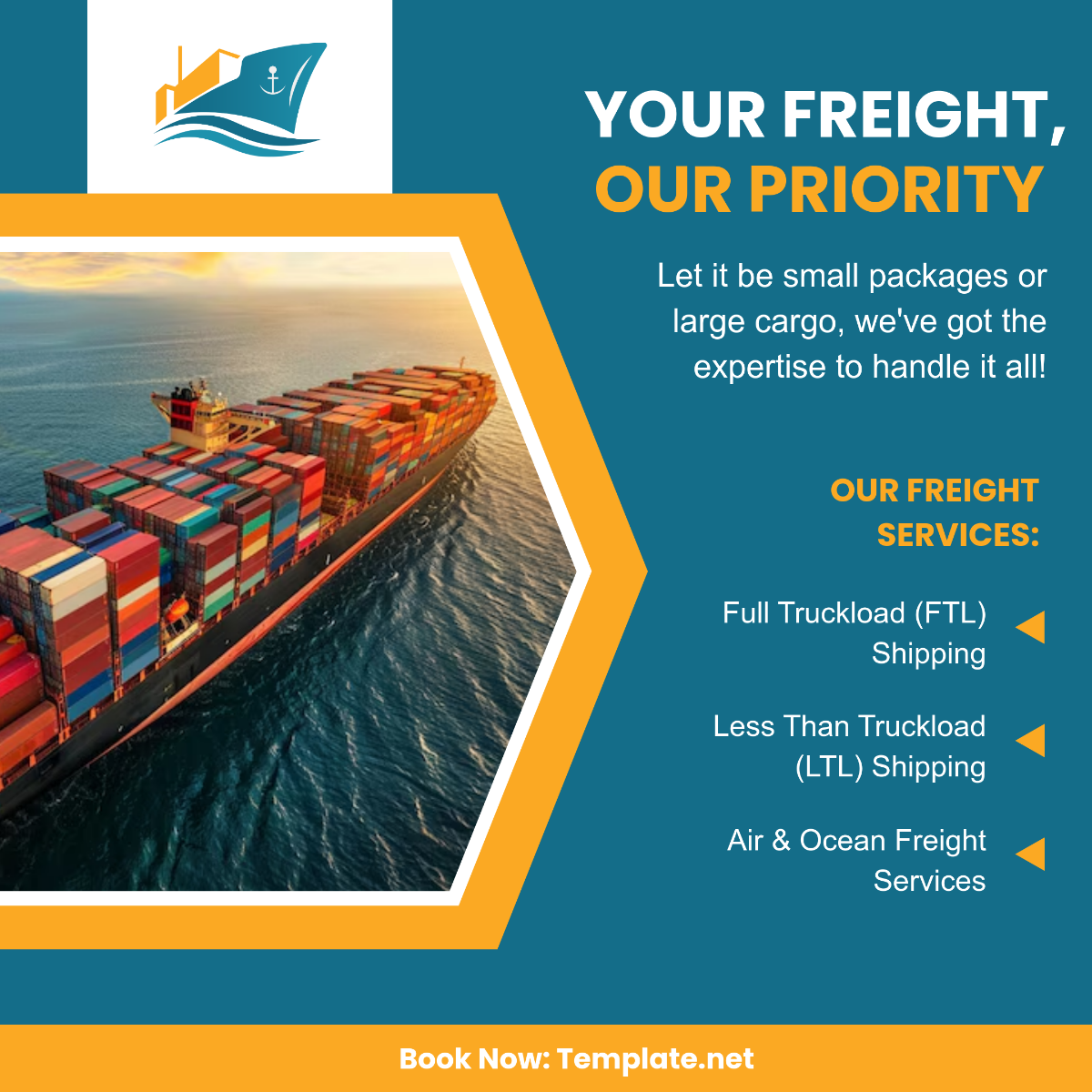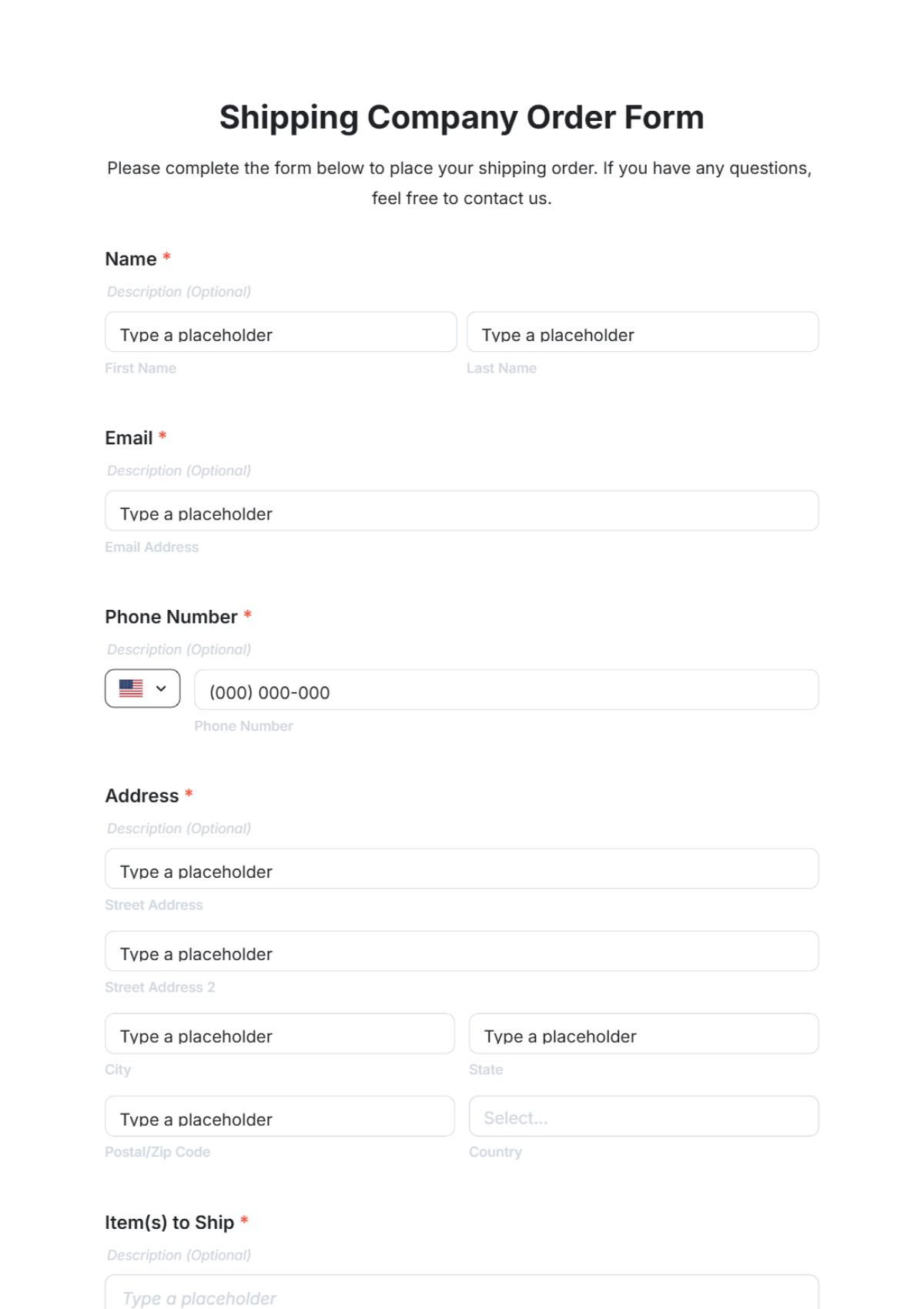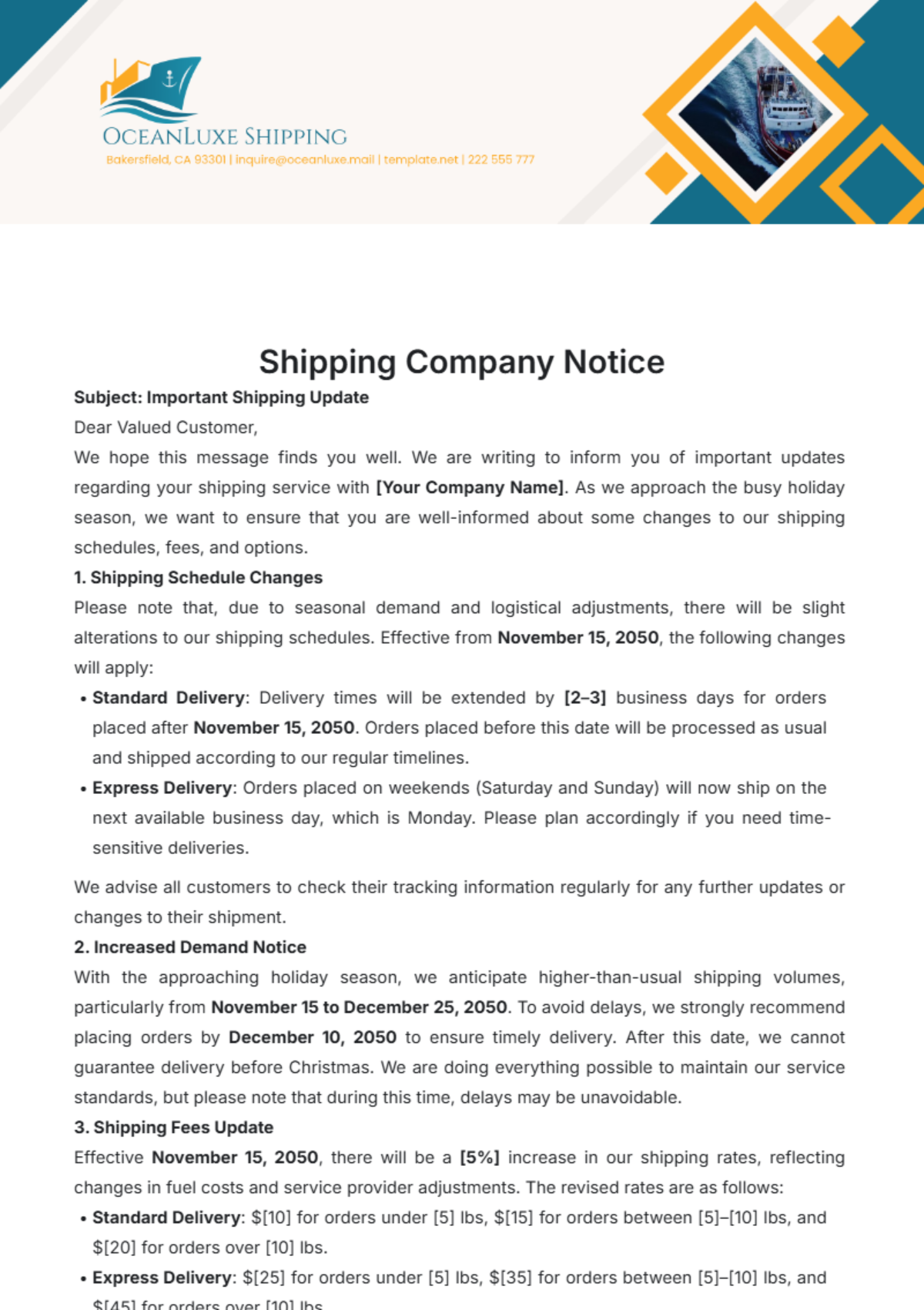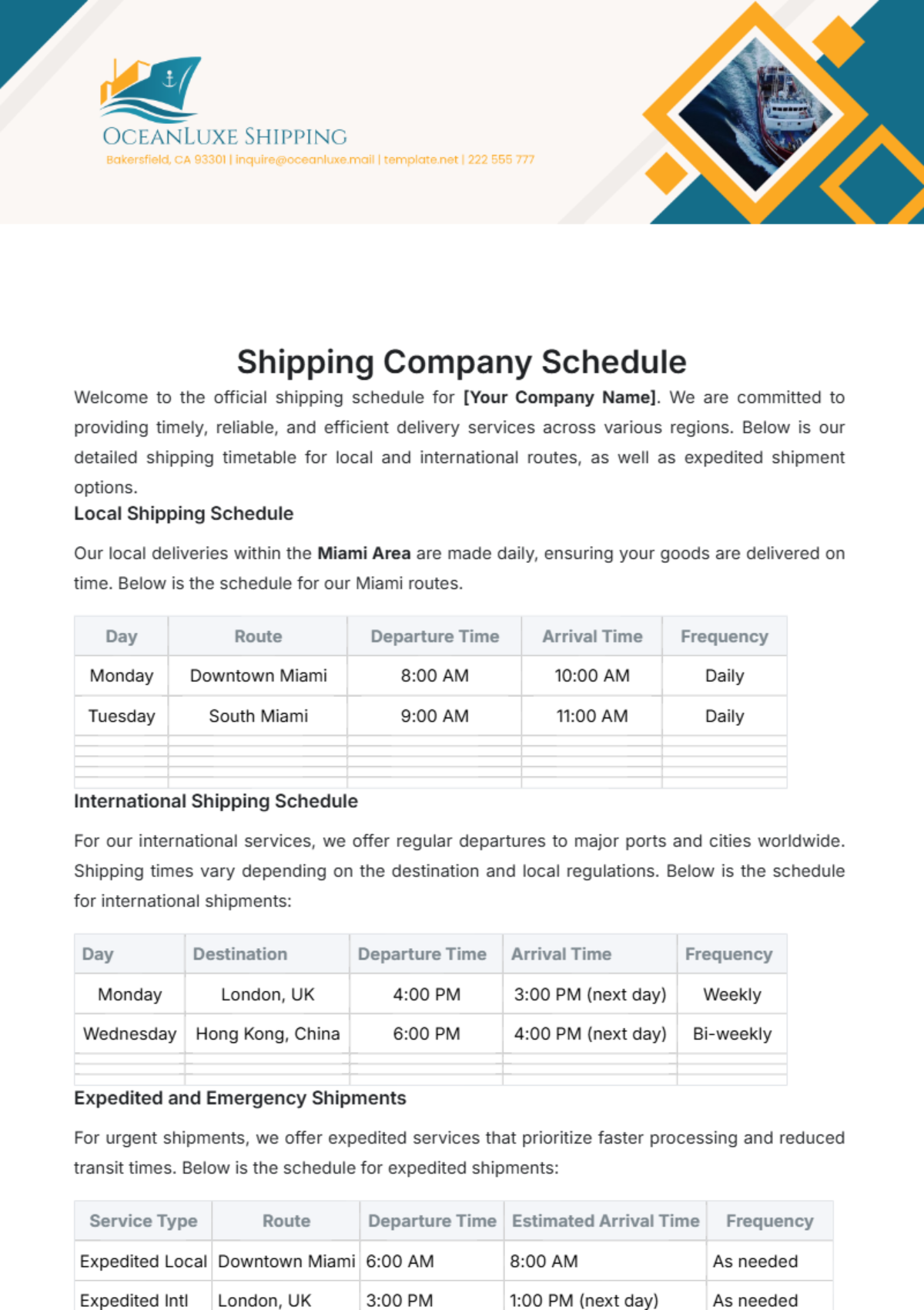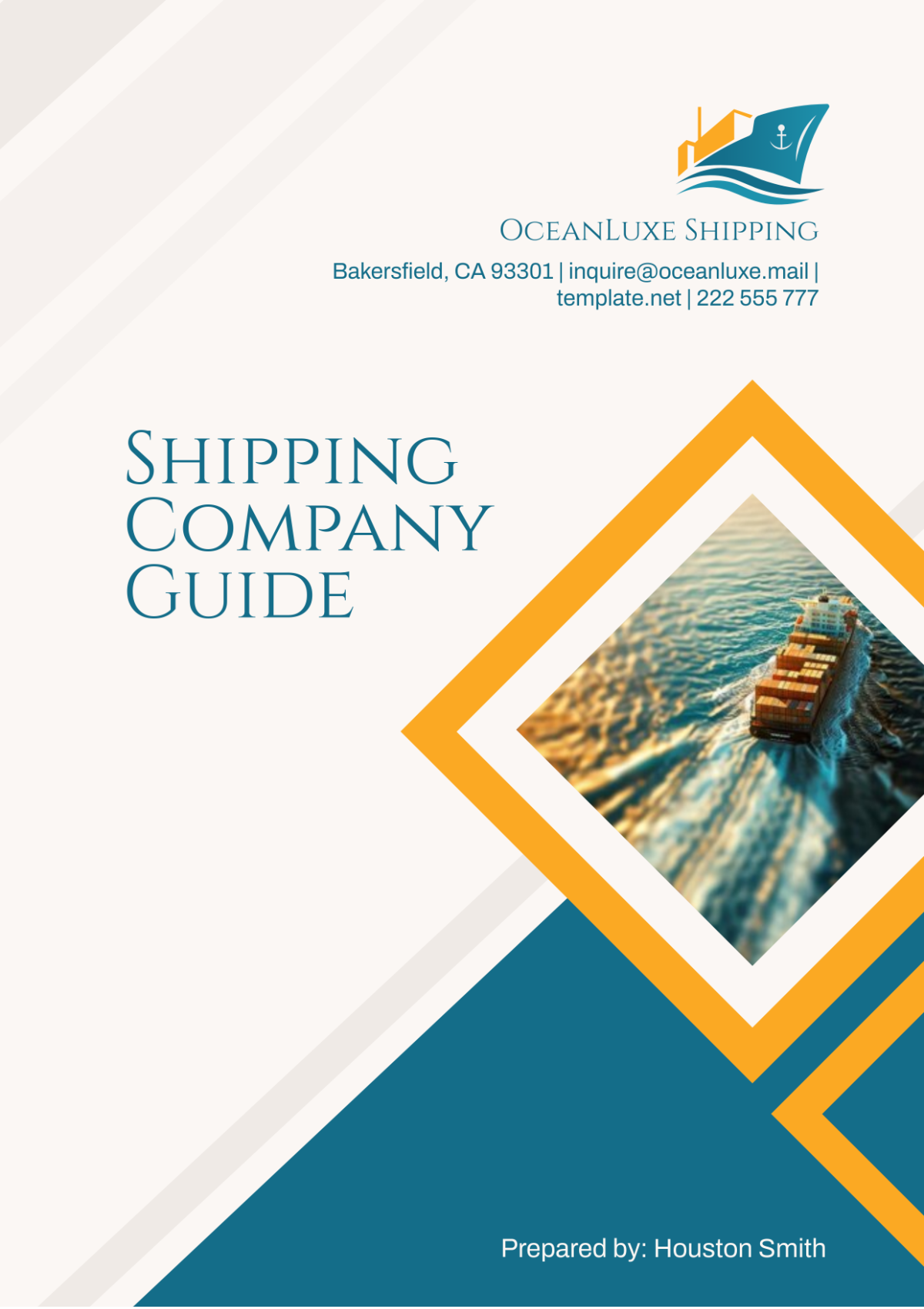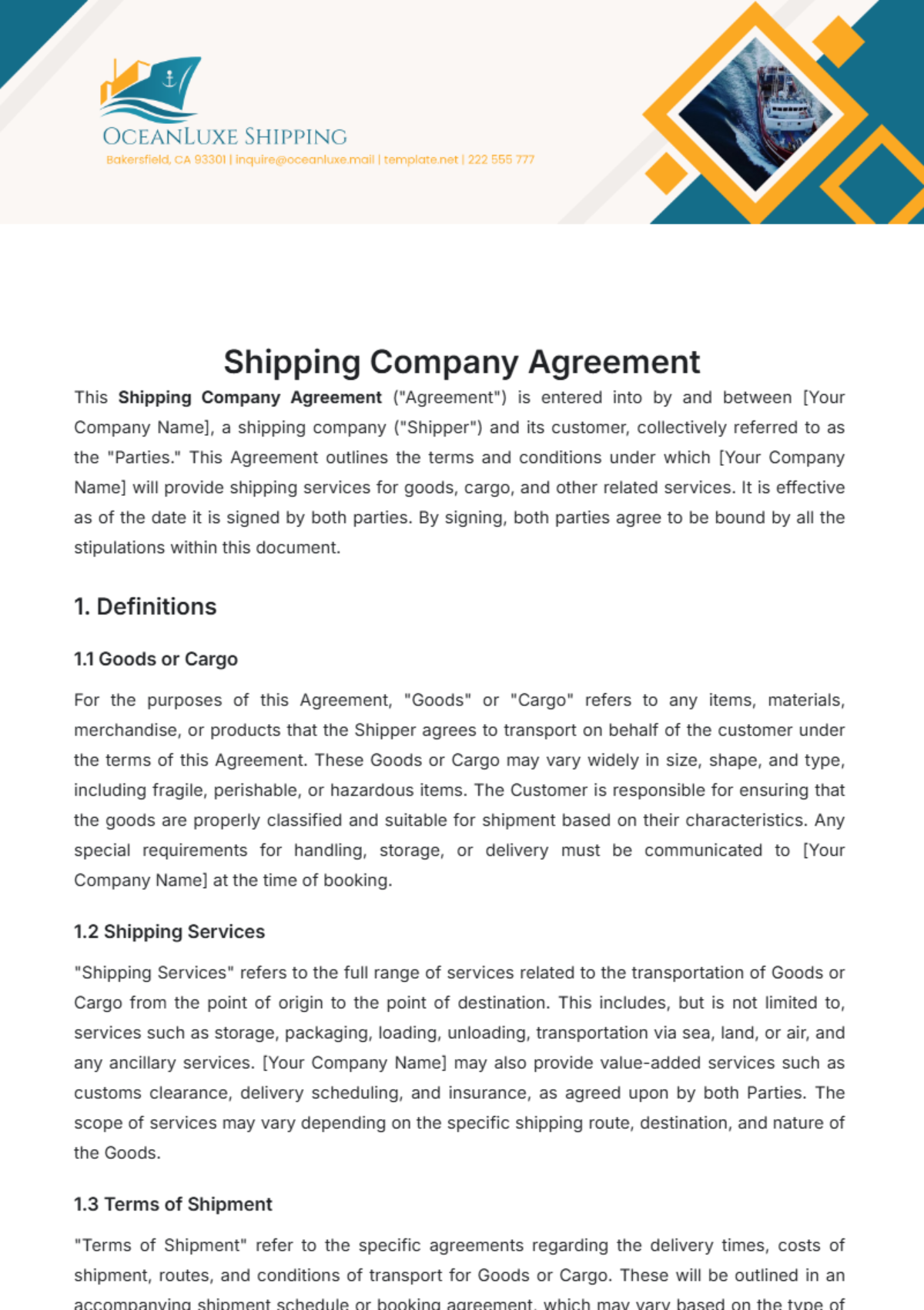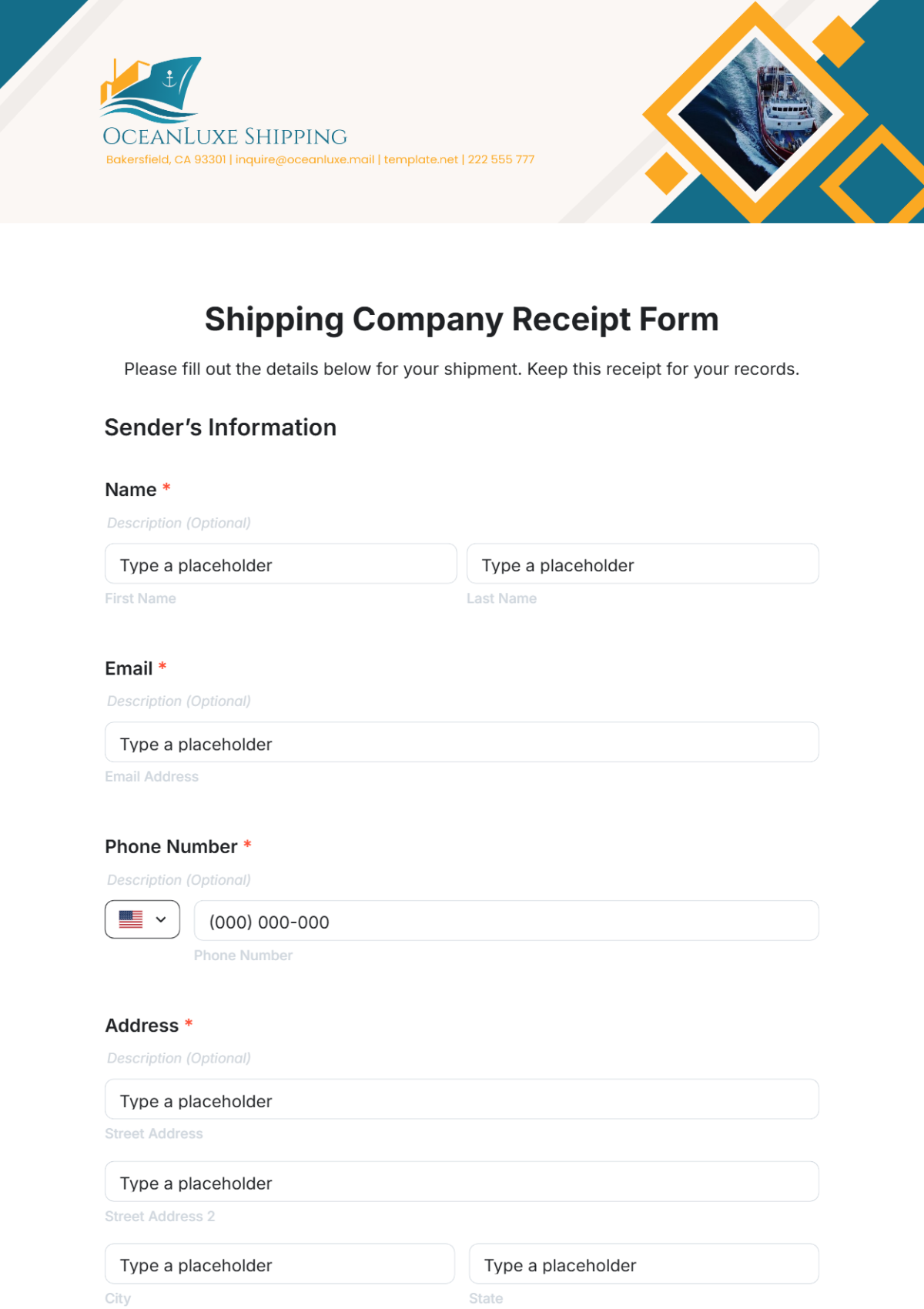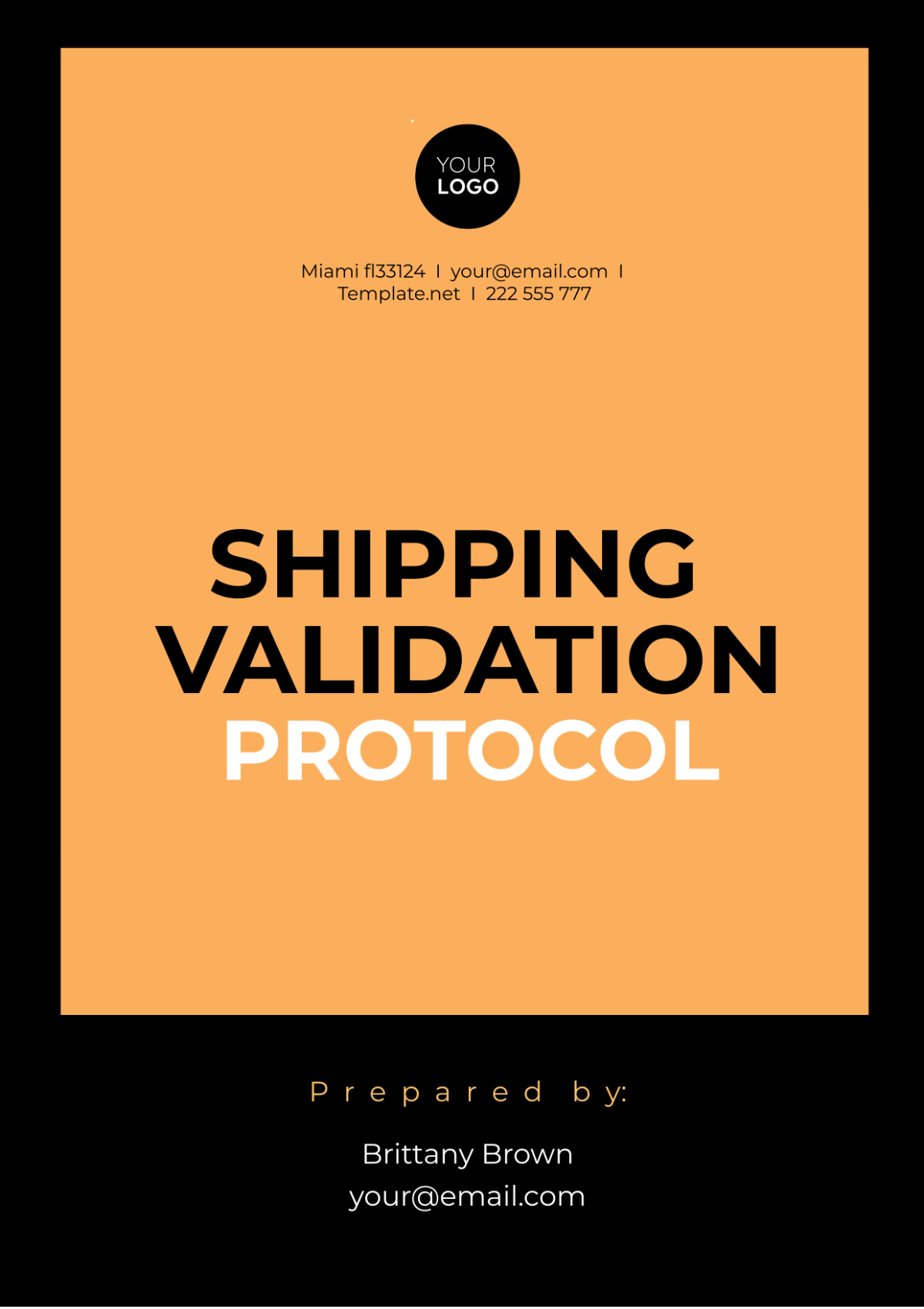SHIPPING REQUIREMENTS
1. Introduction
This document details the essential shipping requirements designed to facilitate an efficient and seamless shipping process. These guidelines are crafted to ensure the timely and secure delivery of goods, while adhering to relevant regulations and industry standards.
2. Packaging Requirements
2.1 General Packaging Standards
To safeguard the safety and integrity of goods during transit, all packages must meet the following general packaging standards:
Durable and Sturdy Materials: Use robust packaging materials to withstand handling and environmental conditions.
Tamper-Evident Seals: Employ seals that clearly indicate any unauthorized access to the package.
Appropriate Cushioning: Incorporate adequate cushioning to mitigate impacts from shocks and vibrations.
2.2 Specialized Packaging
Certain items necessitate specialized packaging due to their unique characteristics, fragility, or regulatory requirements:
Item Type | Packaging Requirements |
|---|---|
Perishable Goods | Utilize temperature-controlled containers and include ice packs or dry ice. |
Hazardous Materials | Use certified hazardous material packaging with clear labeling indicating contents and handling instructions. |
Fragile Items | Wrap with bubble wrap or foam peanuts and affix fragile item labels. |
3. Labeling Requirements
Accurate labeling is critical for proper identification and handling of packages:
3.1 Standard Labeling
All shipments must feature the following information:
Sender's Information: Name and contact details.
Recipient's Information: Name and full shipping address.
Tracking Number: For monitoring the shipment's progress.
Package Weight: To assist with handling and shipping cost calculations.
Contents Description: To provide clarity on the package's contents.
3.2 Special Labeling
Certain shipments require additional labels to comply with legal or safety requirements:
Shipment Type | Labeling Requirements |
|---|---|
Hazardous Materials | Display standard hazmat labels, UN number, and handling instructions. |
Perishable Goods | Affix "Perishable" and "Keep Refrigerated" labels where applicable. |
Fragile Items | Attach "Fragile" labels and arrows indicating the correct upright position. |
4. Transportation Standards
4.1 Carrier Selection
Choosing the right carrier is essential for meeting delivery deadlines and ensuring package safety:
Reputable Carriers: Select carriers known for their adherence to safety standards.
Tracking Capabilities: Opt for carriers with robust tracking systems.
Insurance Options: Consider carriers that offer insurance for high-value shipments.
4.2 Delivery Timelines
Different shipping methods offer varied delivery times:
Shipping Method | Estimated Delivery Time |
|---|---|
Standard Ground | 3-5 business days |
Expedited Shipping | 1-3 business days |
Overnight | 1 business day |
5. Compliance and Legal Requirements
5.1 Local and International Regulations
Ensure compliance with applicable local and international regulations to prevent legal complications and ensure the safety of goods:
Customs Documentation: Complete all required customs paperwork.
Export/Import Restrictions: Follow cross-border shipping restrictions.
Hazardous Materials Regulations: Follow hazardous materials transport regulations.
5.2 Insurance Requirements
Consider insurance policies to protect valuable or perishable items:
High-Value Item Insurance: To cover potential losses of high-value goods.
Damage Insurance: For coverage against damage during transit.
Legal Liability Coverage: To cover potential legal liabilities.
6. Summary
These shipping requirements are designed to standardize the shipping process, ensuring secure, timely, and compliant delivery of goods. Adhering to these guidelines will mitigate risks and enhance the overall efficiency of shipping operations.


